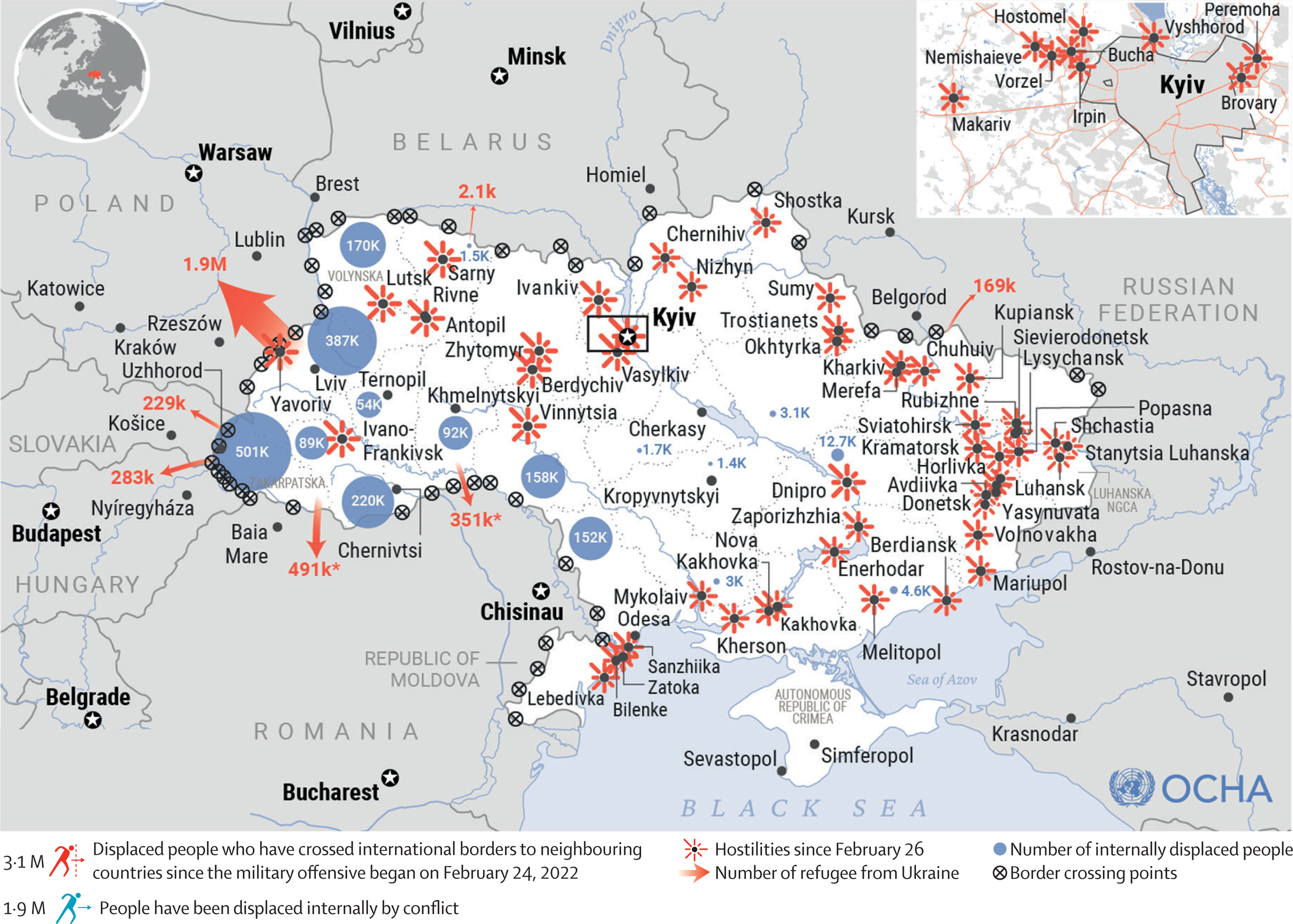Although changes in socio-cultural positions appear to take place shortly after arrival, there is a growing concern on socio-cultural differences in receiving societies and it is widely recognized that socio-cultural positions are important for further participation and well-being, few scholars examined socio-cultural positions among recently arrived refugees in Europe. At the same time, not much is known about how these positions relate to pre-migration, migration and post-migration characteristics, while these could be key indicators of early acculturation.
An Essay on the unfolding health and humanitarian crisis due to the conflict in Ukraine, in the context of SDGs 3 and 16, focusing specifically on provision of cancer care.
A News article on the unfolding health and humanitarian crisis due to the conflict in Ukraine, in the context of SDGs 3 and 16, focusing specifically on the impact on cancer care.
A Comment on the unfolding health and humanitarian crisis due to the conflict in Ukraine, in the context of SDGs 3 and 16, focusing specifically on tuberculosis control programmes for refugees.
A Comment on the unfolding health and humanitarian crisis due to the conflict in Ukraine, in the context of SDGs 3 and 16, focusing specifically on providing palliative care, alleviating suffering, and dignifying death in the context of armed conflicts.
Introduction: Limited research has explored the influence of commuting on expectant mother's health and well-being and how expectant mothers can be supported during their commute. The present study aimed to identify the impact of commuting during pregnancy on women's physical and mental health. Further, the effectiveness of Transport for London's baby-on-board badge was explored. Method: This was a mixed-method study. An online survey of 295 participants over the age of 18 years was conducted to explore their views on commuting and the effectiveness of the baby-on-board badge.




